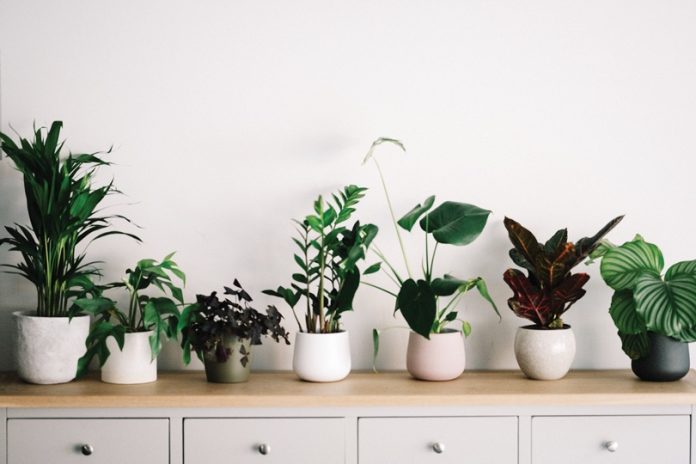By Patrick Langston, All Things Home
Water? Fertilizer? Light levels? Heat?
Winter is approaching, and how you care for your houseplants needs to change with the change in season.
A little knowledge and kindness will help your plants stay healthy and looking good during the coming months. Here’s what to do.
How much water to give house plants?
Our homes are often drier in winter, but that doesn’t mean your plants need extra water. Just the opposite, in fact. Plants go dormant in winter and don’t need all the water that they do in summer when active growth demands high absorption of nutrients with water as the medium.
Most houseplants should be allowed to dry out completely between watering (overwatering is a common cause of weak, leggy and even dead houseplants). To test for dryness, stick your finger an inch or two into the soil; if it’s dry, water; if it’s moist, keep the tap turned off. Remember, water evaporates more quickly from clay pots, so plants in them will need more frequent watering.
Houseplants can generally go two weeks or more without watering. Cacti are happy for a month or two without water (they are desert plants, after all). However, potted citrus plants like lemon and grapefruit need their soil kept moist. An internet search will bring you up to speed on the moisture requirements of your particular plants.
Start moving back to your summertime watering schedule as the days get longer.
Tip: To avoid shocking the roots, don’t use cold water right from the tap. Instead, let the water come to room temperature and then water gently.
Do you feed house plants?
This is an easy one. Don’t do it.
Houseplants are asleep in winter and don’t need to eat. Giving them fertilizer at this time of year can burn their leaves and even kill houseplants. If you’re still fertilizing now, it’s time to stop.
When they start waking up in the spring — look for signs of new growth or more vibrant green in the leaves — it’s time to start feeding them again with a balanced (10-10-10) fertilizer. Dry and liquid fertilizers are available at nurseries and garden centres and, if you follow the directions, are easy to apply and effective. Homemade fertilizer, including used coffee grounds mixed with water, can also work wonders.
Do house plants need light in the winter?
They may be snoozing, but houseplants still need light in winter because photosynthesis, which converts light into energy, continues.
One way to ensure your plants get the light they need is keeping them dust-free so light can penetrate to their leaves (thick-leaved succulents like snake plants are especially prone to collecting dust). A damp cloth does the trick for dusty plants, and you can check for bugs on both sides of the leaves at the same time.
When you’re watering your plants, rotate the pots so all sides get the same amount of light and grow evenly.
Houseplants generally do well in the same household temperatures that humans like. Keep them away from drafts and hot spots, including radiators and fireplaces. They’ll thank you for it with good health and vigorous growth come spring.
Watch for pests
Spider mites are a common houseplant problem in winter because the little critters like a dry, warm environment. Washing the foliage with a soft cloth will help get rid of them, although repeated wiping may be necessary. Regular misting under the leaves will discourage spider mites from appearing in the first place.
If aphids show up, mix equal parts rubbing alcohol and water, add a drop of dish detergent, and apply the mixture with a soft brush.
An internet search will provide solutions to other common pest problems.
